Filter by
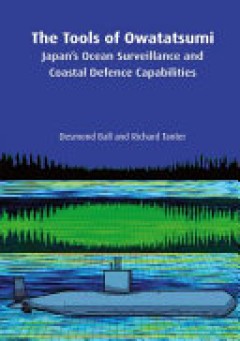
The Tools of Owatatsumi : Japan’s Ocean Surveillance and Coastal Defence Ca…
Japan is quintessentially by geography a maritime country. Maritime surveillance capabilities – underwater, shore-based and airborne – are critical to its national defence posture. This book describes and assesses these capabilities, with particular respect to the underwater segment, about which there is little strategic analysis in publicly available literature. Since the end of the Col…
- Edition
- 7
- ISBN/ISSN
- 9781925022278
- Collation
- 162
- Series Title
- -
- Call Number
- 621.38928.BAL

The Absent Presence of the State in Large-Scale Resource Extraction Projects
Standing on the broken ground of resource extraction settings, the state is sometimes like a chimera: its appearance and intentions are misleading and, for some actors, it is unknowable and incomprehensible. It may be easily mistaken for someone or something else, like a mining company, for example. With rich ethnographic material, this volume tackles critical questions about the nature of c…
- Edition
- -
- ISBN/ISSN
- 9781760464493
- Collation
- xix,380 p
- Series Title
- -
- Call Number
- 338.20994 TON T
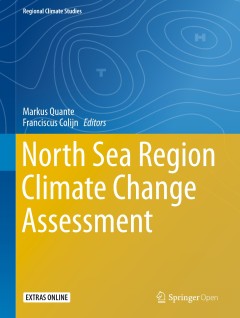
North Sea region climate change assessment
This book offers an up-to-date review of our current understanding of climate change in the North Sea and adjacent areas, as well as its impact on ecosystems and socio-economic sectors. It provides a detailed assessment of climate change based on published scientific work compiled by independent international experts from climate-related disciplines such as oceanography, atmospheric sciences, m…
- Edition
- -
- ISBN/ISSN
- 9783319397450
- Collation
- xlv, 528p. : ill.
- Series Title
- -
- Call Number
- 363.73874 NOR n
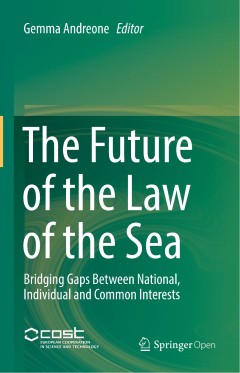
The future of the law of the sea : bridging gaps between national, individual…
It explores the diverse phenomena which are challenging the international law of the sea today, using the unique perspective of a simultaneous analysis of the national, individual and common interests at stake. This perspective, which all the contributors bear in mind when treating their own topic, also constitutes a useful element in the effort to bring today’s legal complexity and fragmenta…
- Edition
- -
- ISBN/ISSN
- 9783319512747
- Collation
- xx, 269p. : ill.
- Series Title
- -
- Call Number
- 341.4 FUT f
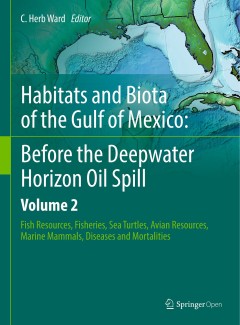
Habitats and biota of the Gulf of Mexico : before the Deepwater Horizon oil s…
The Gulf of Mexico is an open and dynamic marine ecosystem rich in natural resources but heavily impacted by human activities, including agricultural, industrial, commercial and coastal development. Nutrients and pollutants from coastal communities and dozens of rivers flow into the Gulf, including material from the Mississippi River watershed, which drains over one third of continental United …
- Edition
- -
- ISBN/ISSN
- 9781493934560
- Collation
- xlv, 1757p. : ill.
- Series Title
- -
- Call Number
- 577.7364 HAB h
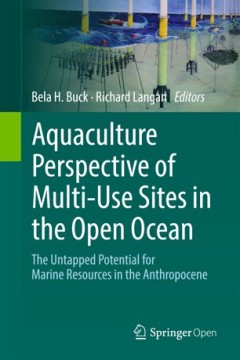
Aquaculture perspective of multi-use sites in the open ocean : the untapped p…
This volume addresses the potential for combining large-scale marine aquaculture of macroalgae, molluscs, crustaceans, and finfish, with offshore structures, primarily those associated with energy production, such as wind turbines and oil-drilling platforms. The volume offers a comprehensive overview and includes chapters on policy, science, engineering, and economic aspects to make this concep…
- Edition
- -
- ISBN/ISSN
- 9783319511597
- Collation
- xxii, 404p. : ill.
- Series Title
- -
- Call Number
- 639.8 AQU a
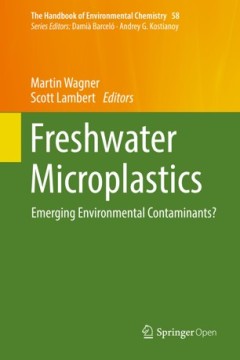
Freshwater microplastics : emerging environmental contaminants?
This volume focuses on microscopic plastic debris, also referred to as microplastics, which have been detected in aquatic environments around the globe and have accordingly raised serious concerns. The book explores whether microplastics represent emerging contaminants in freshwater systems, an area that remains underrepresented to date. Given the complexity of the issue, the book covers the…
- Edition
- -
- ISBN/ISSN
- 9783319616155
- Collation
- xiv, 303p. : ill.
- Series Title
- -
- Call Number
- 628.168 FRE f
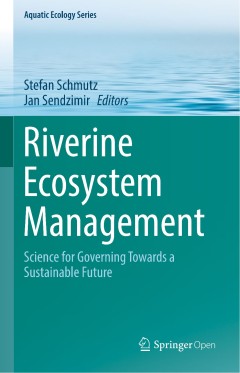
Riverine ecosystem management : science for governing towards a sustainable f…
This open access book surveys the frontier of scientific river research and provides examples to guide management towards a sustainable future of riverine ecosystems. Principal structures and functions of the biogeosphere of rivers are explained; key threats are identified, and effective solutions for restoration and mitigation are provided. Rivers are among the most threatened ecosystems of…
- Edition
- -
- ISBN/ISSN
- 9783319732503
- Collation
- vii, 571p. : ill.
- Series Title
- -
- Call Number
- 577.64 RIV r

Maritime spatial planning : past, present, future
Maritime or marine spatial planning has gained increasing prominence as an integrated, common-sense approach to promoting sustainable maritime development. A growing number of countries are engaged in preparing and implementing maritime spatial plans: however, questions are emerging from the growing body of MSP experience. How can maritime spatial planning deal with a complex and dynamic enviro…
- Edition
- -
- ISBN/ISSN
- 9783319986968
- Collation
- xxxvii, 477p. : ill.
- Series Title
- -
- Call Number
- 333.9164 MAR m
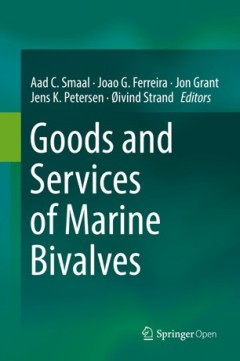
Goods and services of marine bivalves
The aim of this book is to review and analyse the goods and services of bivalve shellfish. How they are defined, what determines the ecological functions that are the basis for the goods and services, what controversies in the use of goods and services exist, and what is needed for sustainable exploitation of bivalves from the perspective of the various stakeholders. The book is focused on the …
- Edition
- -
- ISBN/ISSN
- 9783319967769
- Collation
- xxv, 591p. : ill.
- Series Title
- -
- Call Number
- 577.6 GOO g
 Computer Science, Information & General Works
Computer Science, Information & General Works  Philosophy & Psychology
Philosophy & Psychology  Religion
Religion  Social Sciences
Social Sciences  Language
Language  Pure Science
Pure Science  Applied Sciences
Applied Sciences  Art & Recreation
Art & Recreation  Literature
Literature  History & Geography
History & Geography